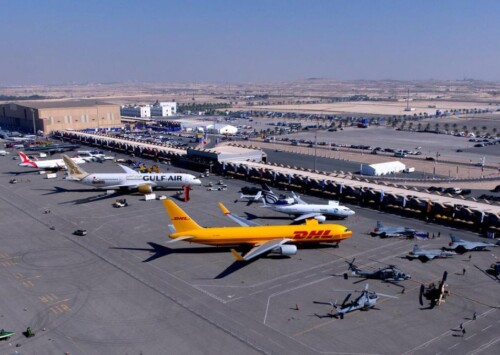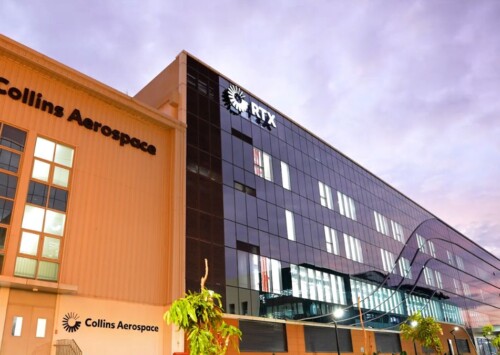AI impact on global workforce deepens as Amazon cuts 30,000 jobs
Automation and AI lead to mass layoffs by tech giants globally

E- commerce Amazon’s recent layoff highlights the transformations being brought in by AI (Photo: Amazon India)
Recently e-commerce giant Amazon announced its second biggest layoff, cutting 30,000 corporate jobs, including 1,000 in India, mirroring similar layoffs by other companies including Microsoft, TCS, highlighting the transformations being brought in by AI to boost efficiency work roles worldwide.

E- commerce Amazon’s recent layoff highlights the transformations being brought in by AI (Photo: Amazon India)
Recently, e-commerce giant Amazon announced its second-biggest layoff, eliminating 30,000 corporate jobs, which account for nearly 10 pc of its 3,50,000 corporate workforce across key divisions, including Human Resources, Operations, Devices, and Amazon Web Services (AWS). The company’s first major downsizing had occurred in 2022, when 27,000 positions were removed as part of an earlier restructuring wave.
The latest round of cuts, which also involved 1,000 positions in India, according to company sources, was closely tied to Amazon’s aggressive adoption of artificial intelligence (AI). The company has revealed that around 1,000 generative AI services and applications are either in active development or already operational, aiming to enhance efficiency, automate repetitive tasks, and reduce dependence on human oversight.
The layoffs underscore a larger, industry-wide transformation, one that reflects the accelerating pace at which AI-driven automation is reshaping corporate workforces.
Amazon’s announcement follows a series of significant layoffs by other global technology companies that are recalibrating their business models around artificial intelligence.
Also read The price of progress: AI’s growing strain on energy and infrastructure
Earlier in the year, Microsoft eliminated approximately 6,000 positions, or 3 pc of its workforce, in a cost restructuring aligned with its expanding AI operations.
Similarly, Google and Meta have both made major cuts. In 2022 Meta laid off 21,000 employees, among the largest in tech history, as they pivot toward AI-based platforms and tools.
In India, Tata Consultancy Services (TCS) laid off 6,000 employees in October as part of a mid-level and senior restructuring process. These collective actions by some of the world’s biggest employers reveal a decisive pattern: corporate structures are being redesigned for an AI-first economy.
While the layoffs might appear drastic, analysts note that they signify a strategic shift rather than a financial downturn. Companies are optimising their headcounts to invest heavily in AI development, machine learning operations, and cloud-based infrastructure, fields that promise higher productivity and innovation.
Aadya Arora, a brand strategist, says that over time, AI has become a smart assistant.
“AI has not become a replacement today, it has only accelerated our work. I feel the use of this developing technology it’s not a threat to the people, but to tasks. Roles requiring routine and repetitive work are likely to be automated first, especially in sectors like BPO and basic analytics. However, for professionals like us, the key is adaptation, not fear. Upskilling to collaborate with AI is the best defence against job displacement and also the clearest path to future opportunities,” Arora told the Media India Group.
The rapid adoption of AI has already begun altering how organisations function. From customer support bots and automated logistics to AI-driven data analytics and content generation, the technology is enabling firms to perform complex tasks faster, more accurately, and with reduced human intervention.
However, this transformation comes with a cost. Many traditional job roles, especially administrative, operational, and mid-management positions being replaced or significantly altered.
The transition marks the start of what experts describe as the “AI workforce reconfiguration”, where efficiency gains through automation outweigh the need for large human teams.
Yatin Patni, working an Operational Manager, said that the current challenge does not like in AI taking jobs but harnessing the potential of the technology.
“For India, if we see, the challenge does not lie in AI taking the jobs away of people. It is more about how prepared we are to evolve with the changing times. Many Indian companies are already fostering a culture of continuous learning, but traditional industries are still lagging behind. Companies need to learn to treat people not as resources to replace but as assets to reimagine. The future of work in this country is not man versus machine, but man with machine,” Patni told Media India Group.
According to multiple reports, AI has the potential to unlock global economic value worth around USD 13 trillion over the coming decades.
Yet, this economic surge is expected to coincide with deep structural changes in employment.
This dual dynamic job displacement alongside job creation illustrates the complex challenge governments and companies face, how to ensure the benefits of automation are shared equitably between the workers and the shareholders.
As Amazon’s sweeping layoffs make clear, the age of AI is no longer a distant future, it is already here. And while machines may power the next industrial revolution, the true measure of progress will depend on how humanity chooses to adapt, evolve and coexist with the technology it has created.









